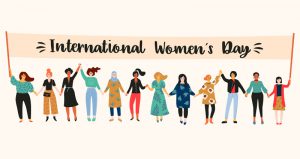Happy International Women’s Day! This year’s theme is #BreakTheBias. Now, it is normal to have biases towards people, it is part of human nature. Our collective biases are often present in the systems and cultures that contribute to gender inequalities.
Rachel Thomas, co-founder and CEO of LeanIn.org and OptionB.org stated that “Gender bias and gender stereotypes are so deeply entrenched in our culture that people of all genders fall into gender pitfalls. Most of us tend to underestimate women’s performance and are more likely to challenge women’s competence—even in their area of expertise. The research on feedback during performance reviews finds that women are more likely to be criticized for their personal style as compared to men. When you take all of that together, the result is that women are less likely to get tapped for that first critical promotion up into manager, which means at every other level there are fewer women to promote. Even today with some of the progress that we’ve seen over the last couple years around women’s representation in leadership, only one in four C-suite leaders is a woman and only one in 25 C-suite leaders is a woman of color.”
Globally, women only hold 29% of senior leadership positions even though women earn more bachelors, masters and doctoral degrees. Women are more educated yet cannot climb their career ladders. This seems crazy right? It has been found that companies in the top quartile for gender diversity are 15% more likely to outperform their competition so there are clearly benefits. Some studies have found that women often adopt participative leadership styles and were more transformational leaders than men. Countries that are the most gender equal score the highest on the happiness scale. Research conducted by Catalyst, a non profit research organisation, found that companies that are more gender equal had the following benefits: happier labour force, lower job turnover, lower levels of attrition and higher rates of job productivity. It is clear to see that it pays to be equal but yet so many businesses fail to acknowledge this.
There are other biases that contribute to women not progressing in their careers or being hired such as:
- having a certain name – candidates with foreign sounding names are 28% less likely to get a call back to an interview compared to ‘anglo saxon’ sounding names
- the halo effect – managers may think highly of an individual because of one characteristic so they will think highly of them in several other ways e.g. if they think someone is good looking, they might think they are intelligent and charismatic even though that may not be the case. Women are especially harshly critiqued for their looks so this is a big barrier
- gender bias (an obvious one) – women that are assertive are often depicted as “aggressive” while a man with the same characteristics could be described as “confident”
- ‘bro-appropriating’ – a woman can make a point in a team that no one seems to be engaging with but a man can make the same exact point later on and everyone will jump on board with “his” idea. This will then discourage women to speak up and share ideas in the future
It is essential that companies and people learn what unconscious biases are so that they can assess how to break these down and work towards a more gender equal workplace. Women bring a lot of value with studies proving that it is beneficial to all parties, including men! So always remember:
“There is no limit to what we, as women, can accomplish” – Michelle Obama
